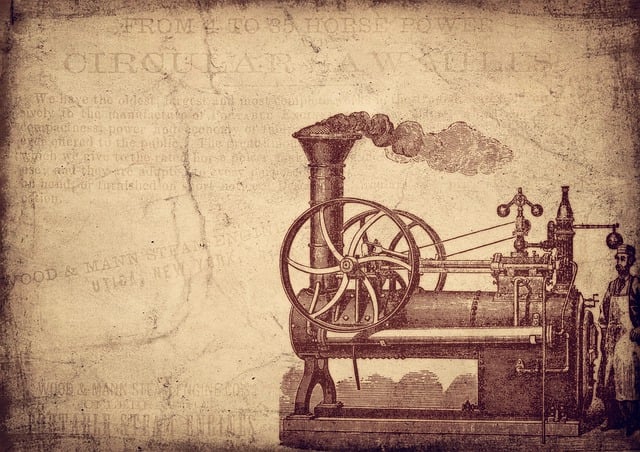> 5/ < v/ (2? < w/ > (2> > in w/ (3/1, – +> (6/ > ( (5/ < (1> > 5/ (4/ (1/ (9/ w/ hn/
In today’s interconnected world, understanding global literary criticism is no longer a luxury but a necessity. The role of translation services becomes increasingly vital in breaking down language barriers and fostering cultural exchange. This article explores how UK literary criticism translation services unlock foreign literature for global audiences. We delve into the challenges, ensure accuracy, discuss impact, and look ahead to future prospects, highlighting the significance of these services in enhancing our collective understanding of diverse literary perspectives.
- Understanding Global Literary Criticism: A Necessity in the Modern World
- The Role of Translation Services in Breaking Down Language Barriers
- UK Translation Services: Unlocking Foreign Literature for Global Audiences
- Challenges and Considerations in Translating Literary Criticism
- Ensuring Accuracy and Fidelity: Techniques for Quality Translations
- Impact and Future Prospects: Global Understanding Through Literary Translation
Understanding Global Literary Criticism: A Necessity in the Modern World

In today’s globalized world, understanding diverse literary works from around the globe has become increasingly vital. The UK, as a cultural hub, plays a significant role in this context through its renowned literary criticism translation services. These services are not just about translating words; they facilitate cross-cultural communication and appreciation of literature, ensuring that stories, ideas, and perspectives from different countries reach a broader audience.
Global literary criticism is essential for fostering cultural understanding and empathy. It allows readers to delve into the social, political, and historical contexts woven into various literary texts, enriching their interpretations and promoting tolerance. UK Literary Criticism Translation Services bridge the gap between languages, making it possible for literature from non-English speaking countries to be accessible and appreciated by English-speaking audiences worldwide. This, in turn, enhances cultural exchange and enriches global discourse on literature.
The Role of Translation Services in Breaking Down Language Barriers

In today’s globalized world, where ideas and cultures intertwine, translation services play a pivotal role in breaking down language barriers. This is especially pertinent when it comes to understanding diverse literary criticisms from around the globe. UK Literary Criticism Translation Services are at the forefront of facilitating cross-cultural communication by accurately rendering complex textual nuances from one language to another.
These services not only ensure that academic discourse and artistic expressions from various regions reach a broader, multilingual audience but also foster an environment conducive to global understanding. By translating literary criticisms, they enable researchers, scholars, and enthusiasts worldwide to engage with diverse perspectives, enriching cultural dialogue and promoting a deeper appreciation for literature across borders.
UK Translation Services: Unlocking Foreign Literature for Global Audiences

In the realm of global understanding, UK literary criticism translation services play a pivotal role in unlocking foreign literature for audiences worldwide. These specialized services ensure that diverse cultural narratives and scholarly works can transcend linguistic barriers, fostering a more inclusive exchange of ideas. By providing accurate and nuanced translations, UK-based literary critics contribute to a rich tapestry of international discourse.
UK Literary Criticism Translation Services are not merely about converting words from one language to another; they involve meticulous attention to cultural subtleties and literary nuances. Professional translators with deep knowledge of both source and target languages ensure that the essence of the original text is preserved, allowing global readers to engage with works they might otherwise have been excluded from. This enables a broader appreciation for different literatures and perspectives, enriching cultural landscapes worldwide.
Challenges and Considerations in Translating Literary Criticism

Translating literary criticism for a global audience presents unique challenges, especially with the diverse range of cultural references and nuances present in literature. When UK Literary Criticism Translation Services take on this task, they must consider more than just word-to-word substitutions. Critical analysis often relies on specific cultural contexts, idioms, and historical references that may not have direct equivalents in other languages. For instance, a reference to a particular literary movement or a specific social issue unique to the UK might need extensive explanation or adaptation to ensure the critique remains valid and understandable for readers worldwide.
Additionally, maintaining the original author’s voice and intent is crucial. Translators must be adept at capturing the subtle shades of meaning, irony, and cultural humor that could be lost in translation. This involves a deep understanding of both languages and literature. UK-based literary critics often emphasize the importance of preserving the original text’s integrity while making it accessible to an international readership, ensuring that the translated critique resonates with diverse audiences and enriches global literary discussions.
Ensuring Accuracy and Fidelity: Techniques for Quality Translations

Ensuring accuracy and fidelity in translation is paramount when it comes to global understanding, especially in the realm of literary criticism. UK literary criticism translation services employ a multitude of techniques to achieve this. One key method involves using native speakers who are well-versed in both the source and target languages. These professionals not only grasp the nuances of language but also cultural contexts, ensuring that the translated work resonates authentically with readers worldwide.
Moreover, advanced technological tools play a significant role. Machine translation software has evolved to offer more precise interpretations, but human review remains essential. Specialized translation memory software stores previously translated segments, enabling consistent terminology and style throughout the project. This, coupled with rigorous quality assurance checks, guarantees that the final product is a faithful representation of the original literary critique.
Impact and Future Prospects: Global Understanding Through Literary Translation

In today’s interconnected world, literary translation plays a pivotal role in fostering global understanding. The UK, with its rich literary heritage and thriving creative industries, is at the forefront of this cultural exchange. UK literary criticism translation services bridge linguistic gaps, making diverse literature accessible to readers worldwide. This accessibility not only promotes cross-cultural appreciation but also enriches global discourse by introducing new voices, perspectives, and narratives.
Looking ahead, the potential for enhancing global understanding through literary translation remains immense. As digital technologies continue to advance, translation services can leverage machine learning and artificial intelligence to expedite processes and improve accuracy. Furthermore, the growing emphasis on diversity, equity, and inclusion in publishing is fostering a demand for translations that capture cultural nuances accurately. This trend promises to create more opportunities for translators, enabling them to contribute significantly to global literary conversations.
In today’s interconnected world, understanding global literary criticism through effective UK literary criticism translation services is more vital than ever. By breaking down language barriers, these services unlock a vast tapestry of foreign literature for diverse audiences. As we navigate the challenges and consider techniques for accuracy and fidelity, the impact of literary translation will continue to foster global understanding and enhance cultural appreciation. This field is poised for a revolution, ensuring that literary works from around the world are accessible, preserved, and celebrated.
